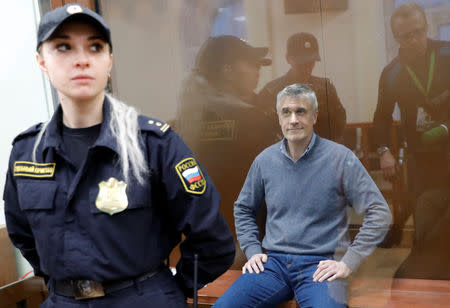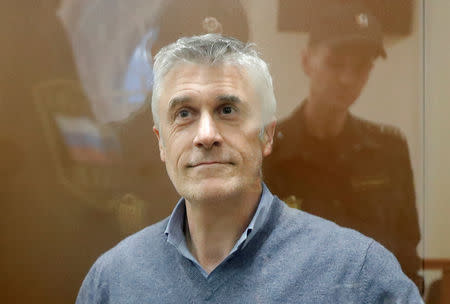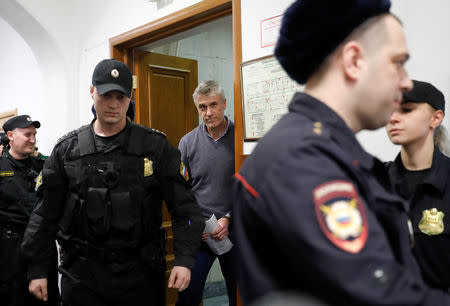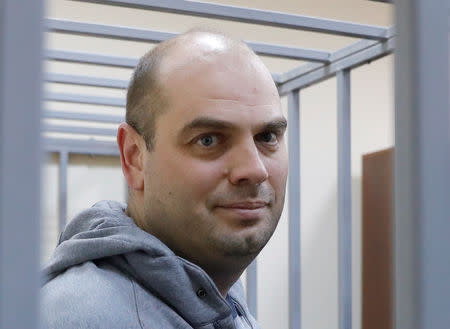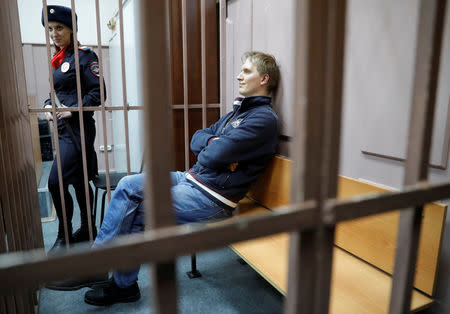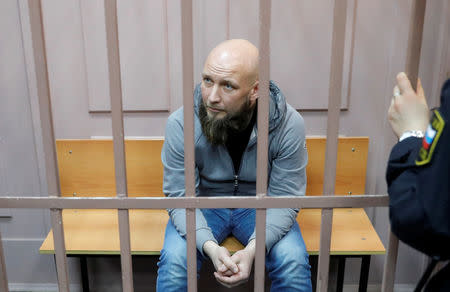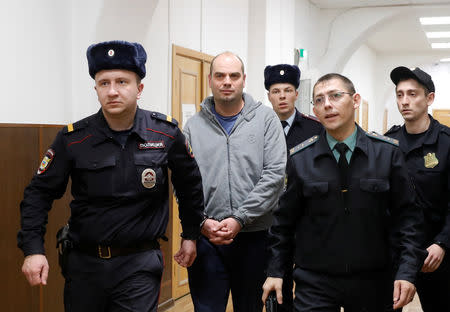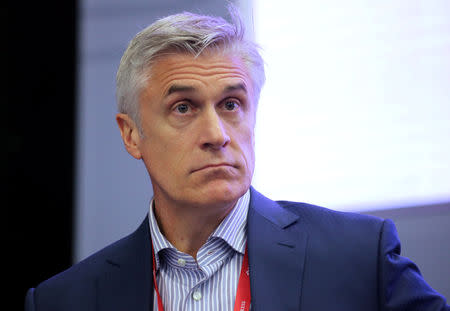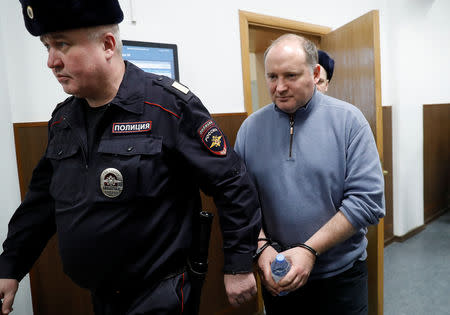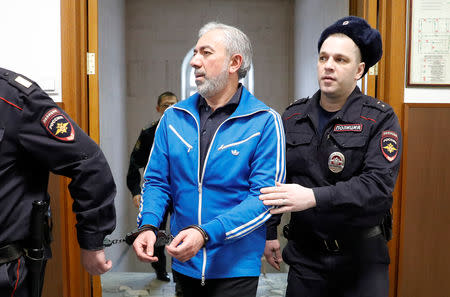Russia detains prominent U.S. investor on suspicion of fraud
By Maria Vasilyeva and Andrew Osborn MOSCOW (Reuters) - Michael Calvey, the U.S. founder of one of Russia's biggest private equity firms, denied allegations of fraud in a Moscow court on Friday but a judge ordered him to be detained for 72 hours, a move that could raise concerns among foreign investors. Calvey, senior partner at Baring Vostok, was first detained on Thursday along with three other executives after investigators accused him and others of embezzling 2.5 billion rubles ($37.61 million). Calvey, who is well known in financial circles as one of Russia's most prominent investors, told the court he was innocent and that the accusations against him had been initiated by Russian businessmen embroiled in a commercial conflict with him and his fund over a Russian bank. "Almost everything said here is false," said Calvey. After listening to him, a judge ordered him to be detained for a further 72 hours, but said the court would consider on Saturday if he should continue to be kept in custody. Calvey's detention came as Russia hosted an investment forum in the Black Sea resort of Sochi intended to attract foreign investors, many of whom stopped pumping in new money when the West imposed sanctions on Moscow for its actions in Ukraine. In the past few years, Russian law enforcement has mounted cases involving the businesses of billionaire entrepreneur Mikhail Prokhorov, Vladimir Yevtushenkov and Ziyavudin Magomedov. Officials have denied the cases are politically-motivated, but some people in business circles say they have had a chilling effect on the business climate. Kirill Dmitriev, the head of Russia's sovereign wealth fund said he knew Calvey and his team as professional investors and would personally vouch for Calvey. Dmitriev is an influential member of President Vladimir Putin's ruling circle. German Gref, head of Sberbank, Russia's biggest state bank, also weighed in on Calvey's behalf, saying he was a decent man and that he hoped the case against him would turn out to be a misunderstanding. Putin was not aware of Calvey's detention, the Interfax news agency cited the Kremlin as saying. "This is not going to play well with the investor community, nor I think (with) the U.S. government and Congress," said Timothy Ash, an emerging markets strategist for BlueBay Asset Management. "(It's a) disaster from a Russian PR perspective," he added, saying it could have an impact on sanctions legislation which has been introduced by U.S. senators to punish Russia for meddling in U.S. elections and for its actions in Ukraine. U.S.-Russia relations are already strained over everything from Syria to missile development as well as the arrest in Moscow of a former U.S. marine, Paul Whelan, accused of espionage. If found guilty, Calvey and the other suspects face up to 10 years in jail. Baring Vostok is a major equity fund group in Russia and its website says it has over $3.7 billion of committed capital. A state prosecutor said Calvey and other executives at his fund were suspected of embezzling 2.5 billion rubles by persuading shareholders in a Russian bank to accept a stake in another firm at an inflated price. The alleged share scam occurred in 2017 and involved Vostochny Bank, a small lender in which Baring Vostok has a controlling stake. It concerned the transfer of equity in Luxembourg-based Financial Technology Group. Baring Vostok, which described the case as a commercial dispute, said it was continuing to operate as normal. It said it had full confidence in the legality of the actions of Calvey and the other executives. Vostochny Bank said it was cooperating with the authorities and was hoping that the losses it had incurred as part of the share deal would be reimbursed. (Additional reporting by Tatiana Voronova, Olga Popova, Andrey Kuzmin, Anastasia Lyrchikova, Katya Golubkova, Tom Balmforth and Maria Tsvetkova; Writing by Andrew Osborn; Editing by Louise Heavens)
